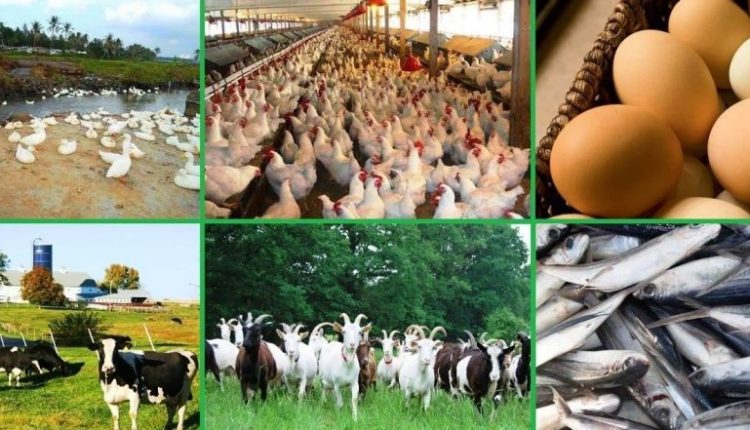News
Tenants Groan As Abuja Landlords Increase Rent

Tenants in the Federal Capital Territory (FCT), Abuja, are groaning over hikes in house rent by their landlords.
Findings by Daily Trust showed that within the last one year, tenants in different areas of the FCT had been notified of rent increases by landlords.
Some of them that were interviewed by Daily Trust queried why landlords would increase rent on houses built years ago.
But some landlords, who also spoke to our reporters, argued that the cost of building materials had gone up.
They also said they increased rent on old buildings because maintenance was also gulping “huge” amounts of money.
Usman Tijani, an information technology expert, who lives in Phase 4, Kubwa, Abuja, said he was informed of a N250,000 increase only four weeks to the expiration of his rent.
“Before I moved in with my family last year, the landlord said he would not increase rent. Only for me to get a notice four weeks ago. I will move out of the house because of the short notice.
“The most annoying part is that the increase is from N600,000 to N850,000 (per annum) for my one-bedroom apartment”, Tijani said.
A fashion designer, Adepoju Ronke, complained that the rent of her one-room “self-contained” apartment at Dei-Dei, was raised from N150,000 to N250,000 per year.
A bank teller, who lives in Dutse, Majekodumi Isaac, said he was recently served an eviction notice by his landlord. He said the landlord later informed him that the two-bedroom apartment would no longer go for N550,000 but N700,000 per annum.
Eromosele Fortune, a resident of Kuje, said an apartment that was hitherto rented for N200,000 per annum “is now between N280,000 and N350,000 depending on the location.”
Some residents of Bwari, Gwagwalada, Gwarimpa, Nyanya, Karu, Dawaki, Lugbe, Apo Resettlement, Wuye, Wuse, Jahi District and other areas of the FCT also decried that their landlords had increased their rent.
Landlord lords speak
A landlord at Kubwa, Julius Odion, attributed the increase in rent to the economic state of the country.
“The rise in the costs of building materials and construction has been a major factor for the increase in the value of the property and rent,” Odion told one of our reporters who pretended to be a prospective tenant.
Another landlord, whose house is located in Wuse District of the FCT, Paschal Chukwu, said the tenants were not being fair to landlords.
“My tenants have been complaining that I increased rent, but the truth is they are not considering the fact that landlords are also going to the same market with them.
“Yes, we didn’t build the houses now, but with the price of everything going up, we too have to increase ours because it is our business and we have to survive,” he said.
Adeyemi Folorunsho, who owns a house in Garki District, said not all landlords could be considerate.
“As landlords, this is the right time to even protect our tenants. During Covid-19 crisis in 2020, I know how difficult it was to pay rent; so I gave my tenants subsidy for their rent and I intend to do so again, but not many landlords can do that,” he said.
Developers seek signing of Real Estate Bill
The immediate past President of the Real Estate Developers Association of Nigeria (REDAN), Aliyu Wamakko, in an interview with Daily Trust, said arbitrary rent increment by landlords would have been a thing of the past if the Real Estate Development Bill had been signed.
He said: “REDAN had initiated a bill on the development of the housing and property sector during the 9th National Assembly, which was not assented to by former President Muhammadu Buhari. If the former President had signed the bill into law, all these issues arising from rent increase and tenancy agreement would have been taken care of,” he said.
He said the lack of regulation for rent should be addressed.
On the reason for arbitrary increase of rent in the FCT, Wamakko said: “Everything in the market is on the high side and it’s the same market that the landlords and tenants go, so it will be difficult for everything to be on the high side while rent remains static”.
He further stated that the current development is a national issue which the government must address head on, as it is not only prevalent in Abuja, but across the country.
FCTA director pleads with landlords
A senior director with the FCT Administration, who craved anonymity because he was not permitted to speak on the matter, noted that there is no law in the country that dictates how much a landlord should charge tenants.
The director however pleaded with property owners to be patriotic by “ensuring moderation in dealing with their tenants, in line with the economic reality in the country.”
He said the FCT Directorate of Mass Housing was doing everything possible to provide affordable houses for low-income earners in the territory.
Credit: Daily Trust
News
Nigeria’s Livestock Sector Will Generate N33trn Revenue If Properly Harnessed – Minister Maiha

Naijablitznews.com recalled that upon assumption of office, the Minister pledged to reform Nigeria’s livestock industry to enhance food security, create a safe environment for all stakeholders, and attract foreign investment.
He disclosed a vision for the newly established ministry to include comprehensive reforms aimed at “unbundling” the sector, strengthening infrastructure, and meeting Nigeria’s growing demand for animal protein.
News
Gov Eno presents N955bn budget to Akwa Ibom Assembly

Akwa Ibom State governor, Pastor Umo Eno, presented a proposed total budget outlay of N955 billion for the 2025 fiscal year to the State House of Assembly for consideration on Tuesday.
This was against the revised provision of N923.46 billion in the 2024 budget.
The 2025 financial appropriation estimate comprised recurrent expenditures of N300 billion and capital expenditures of N655 billion.
Eno said that the total capital receipts and expenditure for the year 2025 is estimated at N655 billion as against the proposed revised provision of N573.32 billion for 2024.
He said that the 2025 Budget, which is christened “Budget for Consolidation and Expansion,” is predicated on an oil benchmark of $75 per barrel at a production rate of 2.12 million barrels per day with an estimated exchange rate of N1,400/US$.
The Governor added that the 2025 oil benchmark and exchange rate is in line with the National Budget benchmark projections.
He said that the total projected recurrent revenue for 2025 is estimated at ₦830 billion as against the proposed revised provision of B803.70 billion, representing a 3 per cent increase in revenue projection for the year 2025.
The governor said the policy thrust objectives of the 2025 budget would be to achieve food security through investing heavily in the agricultural revolution.
Other objectives included rural development through robust investments in modern living facilities such as all seasonal roads, rural electrification and others within rural communities to ultimately improve the quality of life for those in the rural areas and help stem rural-urban migration. Ensuring that public schools in the state are equipped and staffed by teachers who are passionate and dedicated.
He said to realise the year 2025 budget objectives, the state shall adopt and improve the effectiveness of budget performance by ensuring fiscal discipline through the implementation of only programmes that were captured in the budget, among other strategies.
In his remarks, Speaker of the Assembly, Udeme Otong, assured the governor that the lawmakers would quicken the consideration process to ensure speedy passage of the 2025 budget estimate to fasten development in the state.
Otong urged all heads of Ministries, Departments, and Agencies (MDAs) in the state to cooperate with the House of Assembly during the budget defence to ensure speedy passage of the budget.
News
Nigeria loses $1.1bn to malaria yearly – Minister

The Coordinating Minister of Health and Social Welfare, Prof Muhammad Pate said the annual loss to Nigeria’s Gross Domestic Product from malaria exceeds $1.1bn.
Prof Pate said this in Abuja at the inaugural meeting of the Advisory Body on Malaria Elimination in Nigeria.
A statement by the Deputy Director of Information & Public Relations at the ministry, Alaba Balogun, on Tuesday, stated that Pate described malaria as not just a health crisis, but an economic and developmental emergency that must be eliminated.
Pate said the launch of the advisory body was a bold and decisive step to confront and address the disease.
He said, “Malaria continues to exert an unacceptable toll on Nigeria. With 27 per cent of global malaria cases and 31 per cent of global malaria deaths, our country bears the heaviest burden of this disease. In 2022, over 180,000 Nigerian children under the age of five lost their lives to malaria – a tragedy we have the tools to prevent.
“This is not just a health crisis; it is an economic and developmental emergency. Malaria reduces productivity, increases out-of-pocket health expenditures and, compounds the challenges of poverty. The annual loss to Nigeria’s GDP from malaria exceeds $1.1bn, a stark reminder of the economic imperative of elimination.”
The minister said malaria elimination was a critical component of the Nigeria Health Sector Renewal Investment Initiative framework for transforming the health sector, in alignment with the Renewed Hope Agenda of the present administration.
He also highlighted the importance of traditional and religious leaders to drive grassroots support and influence behavioural change.
The Minister of State for Health and Social Welfare, Dr Iziaq Salako, affirmed the advisory body as a group of experts who will provide evidence based advisory to help the country to reduce its unacceptable malaria burden, and set up realistic paths to a malaria-free Nigeria.
“For us to succeed, the private sector, the international partners, the healthcare workers and, the communities we serve must be harnessed and coordinated,” Salako added.
The advisory body is made up of globally renowned experts under the leadership of Prof Rose Leke.
The experts are charged with refocusing on advancing evidence-based solutions that address current challenges, ensuring that malaria elimination is prioritised in the budgets and plans of all levels of government and, creating frameworks for accountability that ensure sustained progress.
-

 News23 hours ago
News23 hours agoBREAKING: Makarfi dies in Kaduna at 93
-

 News20 hours ago
News20 hours agoSimon Ekpa reportedly released from Finnish police detention
-

 Metro16 hours ago
Metro16 hours agoWoman, baby die in Ondo church during delivery, police arrest prophetess
-

 Metro20 hours ago
Metro20 hours agoPolice arrest drug dealer, robber in Bauchi
-

 Metro4 hours ago
Metro4 hours agoSAD! Gas explosion rocks Lagos market, 11 shops damaged
-

 Metro4 hours ago
Metro4 hours agoMany admitted after reacting to drugs shared during free medical outreach
-

 Metro20 hours ago
Metro20 hours agoLibya arrests four Nigerians over drug trafficking, health risks
-

 News20 hours ago
News20 hours agoPort Harcourt Refinery: Lifting of petroleum products begins as NNPCL starts operations








